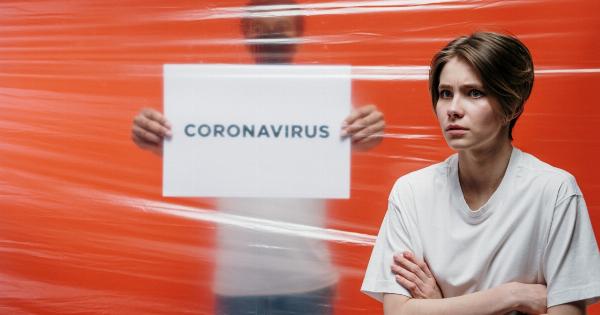Ebola virus is a deadly virus that can cause severe illness and even death if not treated on time. The disease originated in West Africa and is now a global pandemic that requires immediate attention.
It is essential to know the facts and myths about Ebola virus treatment to avoid confusion and ensure proper measures are taken to prevent the spread of the virus.
Myth: There is a cure for Ebola virus
False. There is currently no known cure for Ebola virus. However, some experimental treatments have shown positive effects on patients in clinical trials.
Medical professionals and researchers are working hard to find an effective treatment and hopefully a vaccine for the virus.
Myth: Vaccines can prevent Ebola virus
Partly true. Vaccines are available that can help prevent the risk of getting Ebola virus infections. Currently, two vaccines are available for use, the rVSV-ZEBOV vaccine and the Ad26.ZEBOV/MVA-BN-Filo vaccine.
These vaccines have been shown to be up to 97.5% effective in preventing the virus contraction and are recommended for people who are at high risk of getting infected.
Myth: Ebola virus can be cured with antibiotics
False. Ebola virus is a viral infection, and antibiotics cannot treat it. Antibiotics only work against bacterial infections, and using them incorrectly can cause antibiotic resistance and pose a risk to the patient’s health.
Myth: Essential oils and herbs can cure Ebola virus
False. There is no scientific evidence that essential oils or herbs can cure Ebola virus. Using unproven remedies instead of standard medical care can be life-threatening and dangerous.
Myth: Consuming garlic can cure or prevent Ebola virus infection
False. Although garlic has some antibacterial and antiviral properties, it cannot cure or prevent Ebola virus infection. Consuming garlic may be part of a healthy diet, but it is not a cure for this deadly virus.
Myth: Ebola virus is airborne
False. Ebola virus is not an airborne virus, it cannot spread through air droplets like the flu or COVID-19. It spreads through direct contact with bodily fluids of infected persons, such as blood, vomit, and feces.
Myth: You can get Ebola virus from mosquitoes
False. Ebola virus cannot be transmitted through mosquitoes or other insects. It is only transmitted through direct contact with bodily fluids of an infected person or animal.
Myth: Ebola virus only affects Africans and people of African descent
False. Ebola virus does not discriminate based on race, ethnicity, or nationality. It can affect anyone who comes in contact with an infected person or animal.
Myth: Ebola virus is not treatable
False. Ebola virus is treatable, and supportive care can help manage the symptoms. Symptoms can be managed through hydration, maintaining blood pressure, and replacing lost electrolytes.
Early treatment and proper medical attention can increase the chances of survival.
Myth: The Ebola vaccine can give you the virus
False. The Ebola vaccine cannot give you the virus. The vaccines are made using a weak part of the virus, which cannot replicate, infect, or cause disease.
Conclusion
It is essential to distinguish fact from fiction when it comes to Ebola virus treatment. There are currently no known cures for Ebola virus, but measures can be taken to prevent infections.
The rVSV-ZEBOV vaccine and the Ad26.ZEBOV/MVA-BN-Filo vaccine have been proven effective in preventing infections. Antibiotics and home remedies cannot cure the virus, and neither can garlic or essential oils. Ebola virus is not an airborne virus or transmitted through mosquitoes.
The virus does not discriminate based on race, and anyone who comes in contact with infected persons and animals is at risk. Finally, early treatment and proper medical attention can help manage symptoms and increase the chances of survival.


















